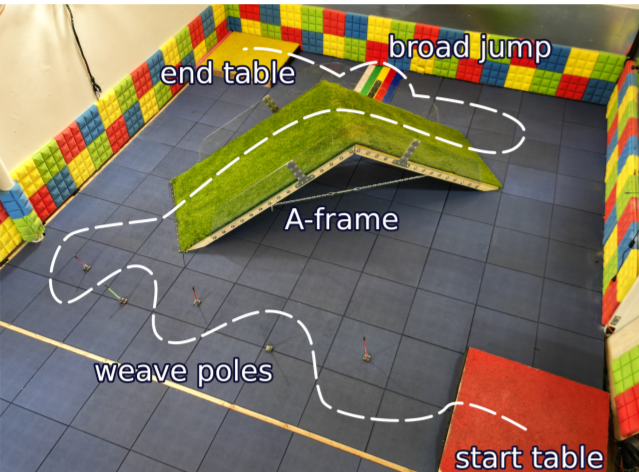Google DeepMind Launches 4-Legged Robots BenchmarkGoogle DeepMind Launches 4-Legged Robots Benchmark
The new system, Barkour, is said to be the first to measure quadruped robot efficacy
.png?width=1280&auto=webp&quality=95&format=jpg&disable=upscale)
Google’s DeepMind team has released a system to test and assess the efficacy of quadruped robots, dubbed Barkour.
While the popularity and use of these four-legged robots are increasing across industries, as of yet there has not been a method of determining their agility and mobility, or a standard against which designs can be compared.
“We believe that developing a benchmark for legged robotics is an important first step in quantifying progress toward animal-level agility,” the team said.
As dogs are often the inspiration for a lot of four-legged robotic designs, the team had a real dog complete an obstacle course and compared its performance to that of its robotic counterparts.
Inspired by dog shows, the course was made up of four tasks, which asked the dog to display several capabilities including moving in different directions, crossing uneven terrain and jumping over obstacles.

Credit: Google
Performance was rated on a scale of 0 to 1 or success and failure, whereby success was determined by whether the robot could complete the obstacle in a similar time frame to the real dog – approximately 10 seconds.
Penalties were given for skipping, failing obstacles or moving too slowly.
“By tying the performance metric to real dog performance,” the team said, “We provide an intuitive metric to understand the robot performance with respect to their animal counterparts.”
By adapting robotic dogs to meet the benchmark in the tests, the designs became more “agile, robust and versatile,” The team said.
“Our findings demonstrate that Barkour is a challenging benchmark that can be easily customized and that our learning-based method for solving the benchmark provides a quadruped robot with a single low-level policy that can perform a variety of agile low-level skills,” the team concluded.
About the Author
You May Also Like








